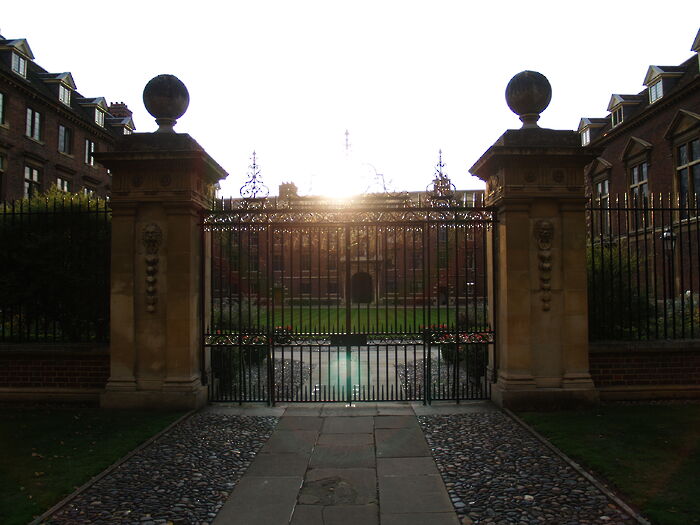Two-year degrees will harm the already disadvantaged
In response to the government’s plan to introduce two-year degrees, Noah Froud argues they will create a two-tiered higher education system, to the detriment of the disadvantaged

In itself, the two-year degree is not a fundamentally flawed idea. Some universities could squeeze the holidays to deliver the extra teaching required rather than just cramming more work into term time. The government could give extra maintenance loans to two-year students to make up for the fact they’ll be unable to work over the summer to fund their studies. Two-year degrees could boost access to higher education for the disadvantaged by being more accessible to mature students.
In reality, this is a policy dreamt up with one thing in mind. Like every aspect of the Conservative’s education policy, it is about cost-cutting. Seeing a desperate need to cut costs but still produce graduates, they’ve concluded that the quickest and cheapest way to make a graduate is to make courses only two years long.
This is a party which has mercilessly cut school budget, eliminated the Education Maintenance Allowance and Maintenance Grants, and who have been accused of mis-selling student loans by those well-known Marxists at the National Audit Office.
“It’s driven by the rationalised view of education, the need to transform you into a graduate as quickly and as cheaply as possible”
Apparently, two-year degrees are part of a plan to deliver better ‘value for money’ for students. This is ironic, coming from a government which has been mis-selling loans to those same students. What the government is really concerned about is cost-cutting. Having realised that most students will never repay their debts from three years at university and that it’s political suicide to retrospectively change students loan conditions, the obvious answer is to cut the amount of money the government loans out in the first place. Quite simply, this is an austerity degree.
The true purpose of these degrees is made obvious by the way that every other benefit has clearly been plucked from thin air. For example, an idea that’s been floated is that employers will be more attracted to those who take a two-year degree based on the ‘attitude’ it demonstrates. Now, considering how competitive the graduate market is, I doubt that it is the case that the supposed ‘go-getter’ attitude of someone with an accelerated degree alone will get them a job. We’ve all heard that employers would rather have someone who’s held down a part-time job and been involved with clubs and societies at university and got a decent second-class degree over someone who has done just their degree and received a first-class grade. We all know that employers care about the range of experience we’ve acquired, but someone at the Department for Education clearly hasn’t clocked that.
Even if they wanted to, the government is not going to be able to force every university into adopting this programme. Considering Oxbridge has so far managed to maintain anachronisms like eight-week terms, the idea that any government is going to be able to force these institutions to do a two-year degree ignores the privileged position that institutions like Oxbridge, Durham and LSE enjoy.
However, it may signal the death of the ideal of quality higher education being accessible for all. If some universities are forced to switch to two-year programmes, we will see the creation of a two-tier education system, divided between two-year degrees and three-year degrees. At two-year institutions, lecturers will effectively become sixth form teachers. Teaching all year round, they will simply have no time for the other part of academia: research. In the three-year degree tier, academics will do both teaching and research but in the two-year universities, they’ll just do teaching. Seeing as the whole point of a university education is to be taught by people doing research, it’s clear those doing two-year degrees will miss out on more than just a year of teaching, but the whole point of a degree. Given that we currently have a stratification of universities which mirrors Britain’s class structure, with elite institutions being packed with (wait for it) the elite, we can expect that universities with more working-class students will be the ones forced to adopt the two-year degrees. Of course, students at predominantly middle-class institutions will continue to get their quality education and three years of university experience; it’ll be the more disadvantaged students who’ll be denied it.
Some commentators like Simon Jenkins seem to yearn for a return to the ‘good old days’, where a ‘true’ university education was reserved for the few and the rest made do with the ‘flexibility’ of polytechnics, open universities and public museums. Such arguments are impossible to support when you realise the class connotations of reversing the expansion of mass education.
No one really believes this announcement is about flexibility or choice. The Conservative Party doesn’t care about quality or social mobility or education as a social good. It’s driven by the rationalised view of education, the need to transform you into a graduate as quickly, and as cheaply as possible
 News / Uni may allow resits for first time24 May 2025
News / Uni may allow resits for first time24 May 2025 Comment / Not all state schools are made equal 26 May 2025
Comment / Not all state schools are made equal 26 May 2025 Fashion / Degree-influenced dressing25 May 2025
Fashion / Degree-influenced dressing25 May 2025 News / Students clash with right-wing activist Charlie Kirk at Union20 May 2025
News / Students clash with right-wing activist Charlie Kirk at Union20 May 2025 News / Clare fellow reveals details of assault in central Cambridge26 May 2025
News / Clare fellow reveals details of assault in central Cambridge26 May 2025






